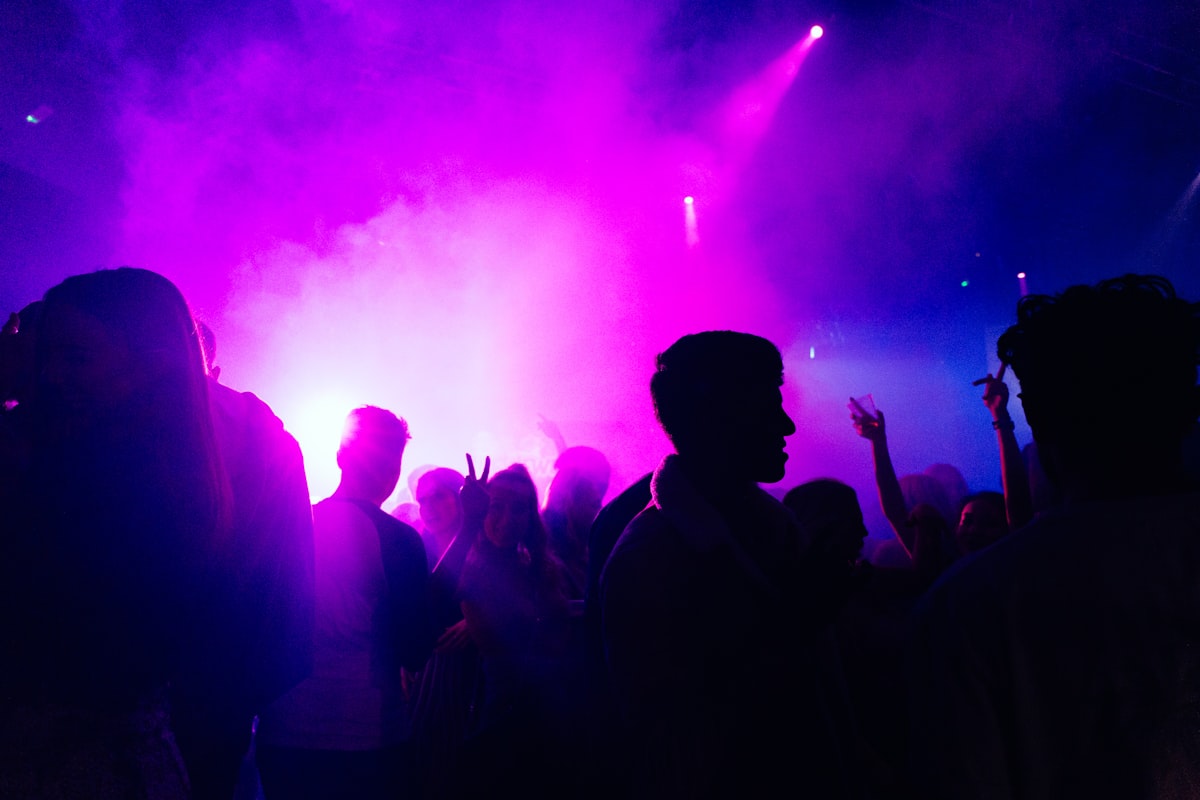This is where I'd end it
“This sucks,” I yell, and what I mean by “this” is everything.

on June 9th, 1993: the three of us―me, Jo and William―stopped forever in a circle, mid-spin, heads thrown back in worship of our god, the disco ball. We’d freeze like it’s the last tableau from that Intro to Directing exercise―we were all theatre majors―the one where we told stories with posed actors in three frozen frames: beginning, middle and end. It always reminded me of these life-size nativity scenes I saw once as a kid, a series of enormous dioramas telling the story: the angel arriving; pregnant Mary traveling with Joseph; the baby born in a barn; three kings with presents. The lighting was warm. Everything glowed. And, wow did they love that baby. I understood that a family could be like this, even a makeshift one.
Tableau #1 would be me and Jo leaning against the inner stairway railing on the third floor of the West Coast Production Company, a gay dance club in San Diego. Jo’s back is against the railing, her bare arms perched behind her, elbows out, like chicken wings. She’s wearing a swingy red sleeveless shirt with matching flared pants. I am next to her, leaning at the same angle, in a flowy white blouse and a short black skirt. One knee is bent and the bottom of my platform Mary Janes rests on a low rail behind me. The dance floor is empty. It’s “Straight Night.” Techno pounds through the speakers, someone’s idea of what straight people like to dance to.
Unfreeze.
“This sucks,” I yell, and what I mean by “this” is everything.
Jo is leaving, going back home after her year abroad, which sucks. We recently realize that the missing fourth member of our quartet, Luke―William’s boyfriend and a delightfully child-like sprite with frosted bangs, who loves 1970s kitsch, worships Kylie Minogue and regularly wears striped bell-bottom pants―has something much worse than the “cancer in his leg” William had originally claimed, which sucks. Luke’s at home, too sick to dance, which sucks. William is keeping all of his feelings bottled up inside, which sucks. Sucks. Sucks. Sucks.
Jo leans in close: “What?”
“This music,” I say, pointing at a speaker. “It sucks.”
Then: the sound of a drum machine, followed by church-y synth notes. I’d recognize it anywhere: the opening bars of the Pet Shop Boys’ “West End Girls.” The sound floats up the stairwell, beckoning to me from the first floor where William is dancing to hits from the 70s and 80s.
Jo looks down, lips pursed.
“I’ve got it!” I say, as if in mid-conversation. “Just don’t go!”
She looks up at me.
“Fuck merry ol’ England,” I continue.
She says something I can’t hear.
“What?” I say.
“My. Visa. Will. Expire,” she says, trying to be heard over the techno.
“Visa, shmee-sa,” I say, gesturing theatrically. “Just stay for grad school.”
“It’s. good. For. William. To. Be. out.” Jo says. Subject changed.
I gesture to my ears and shake my head, and then turn around, leaning my torso over the top railing, forming Tableau #2.
Unfreeze.
Jo turns around to match me, twinning again.
“How’s Luke?” she asks.
“I don’t know,” I say, trying to spot William below.
Jo asks me a lot of questions I don’t know how to answer. She’s like Reina, my therapist at the college counseling center whom I haven’t seen in months, not since she told me not to come back until I was ready to acknowledge my chronic depression. Dis-THY-mee-yuh, is how she pronounced by diagnosis, in a way that seemed to call attention to my fat thighs. If Reina had grown up in a house where sadness hung in the air like cigarette smoke, she’d have dysthymia―and fat thighs―too.
Joyful trumpeting heralds the coming of “Go West” by the Village People, the sound bursting like fireworks from below.
“I fucking hate techno,” I say, uncurling myself from the railing and sprinting away.
By the time Jo catches up to me, I am already downstairs at the bar. I scoop up the three shot glasses up with my thumb and two fingers to bring as an offer to William, who is in the center of the dance floor performing like he’s the lead Village Person. Jo follows.
When I reach William I raise the glasses in the air.
“To merry ol’ England!” I say.
“To merry ol’ fucking England!” shouts William, taking a shot and raising it. Jo, too. Clink. We knock back the stinging liquid. I get rid of the empties and return to the dance floor. We take each other’s hands.
And this is where I’d end it, in Tableaux #3, the final frame, together inside this well-lit Village People-induced bubble, mid-spin. Luke is at home, but not that sick yet, and definitely not dead. He’s at their apartment, relaxing on their thrift-store couch, watching DVDs of Pee Wee’s Playhouse, petting their cat, held in our thoughts, while the three of us settle into a spinning rhythm, like our bodies are a merry-go-round made of flesh and our willingness to hold on, to tighten our grip as we relinquish control, guided by a force greater than us, in defiance of every physical law except centrifugal force which is the only thing to keep us from falling.
Lori Yeghiayan Friedman's most recent work has appeared in Longleaf Review, Autofocus Lit, Pithead Chapel, Memoir Monthly and the Los Angeles Times. Her creative nonfiction has twice been nominated for a Pushcart Prize. She earned an MFA in Theatre from UC San Diego and attended the Tin House Winter Workshop 2023. Follow her on Twitter: @loriyeg



